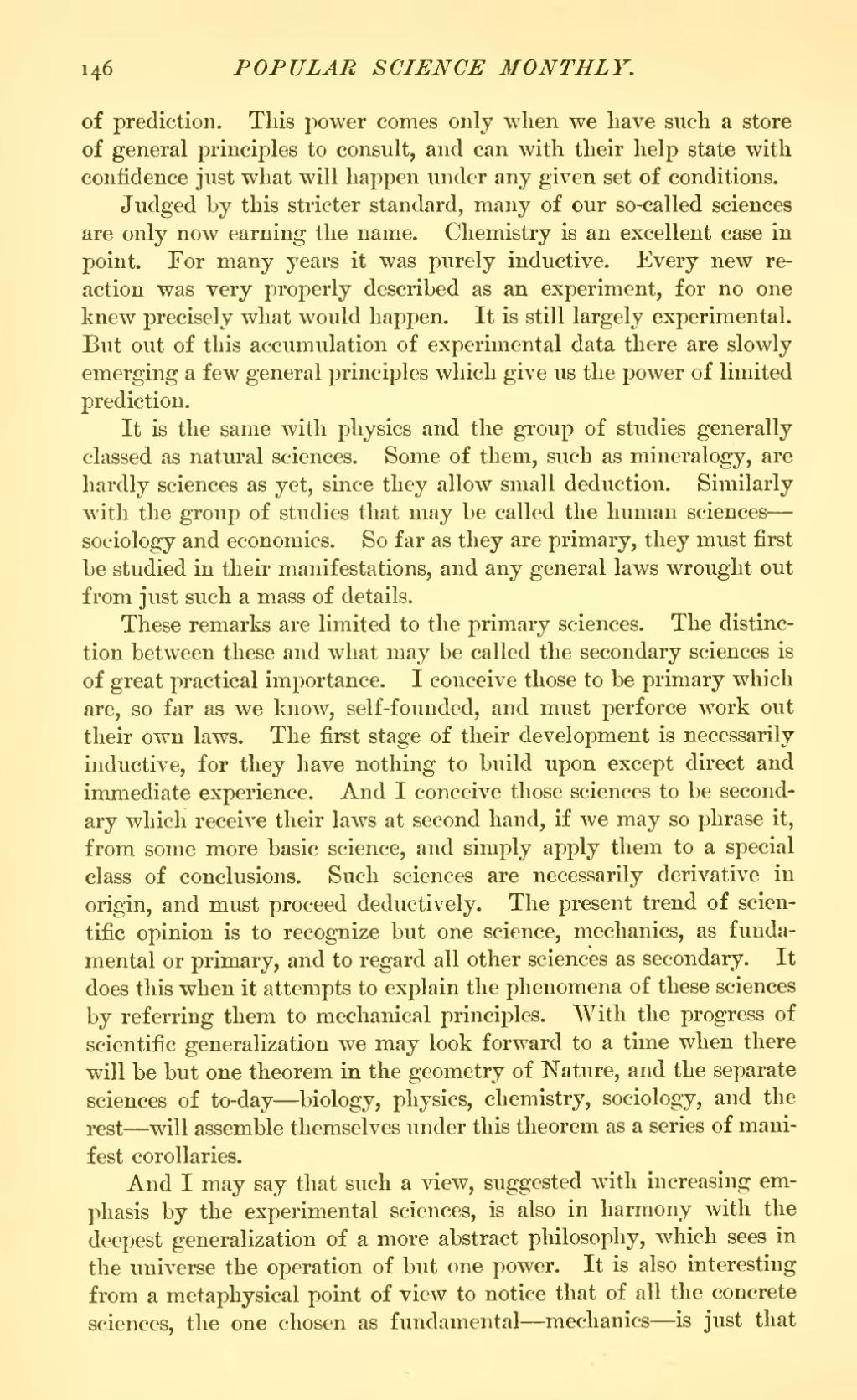of prediction. This power comes only when we have such a store of general principles to consult, and can with their help state with confidence just what will happen under any given set of conditions.
Judged by this stricter standard, many of our so-called sciences are only now earning the name. Chemistry is an excellent case in point. Tor many years it was purely inductive. Every new reaction was very properly described as an experiment, for no one knew precisely what would happen. It is still largely experimental. But out of this accumulation of experimental data there are slowly emerging a few general principles which give us the power of limited prediction.
It is the same with physics and the group of studies generally classed as natural sciences. Some of them, such as mineralogy, are hardly sciences as yet, since they allow small deduction. Similarly with the group of studies that may be called the human sciences—sociology and economics. So far as they are primary, they must first be studied in their manifestations, and any general laws wrought out from just such a mass of details.
These remarks are limited to the primary sciences. The distinction between these and what may be called the secondary sciences is of great practical importance. I conceive those to be primary which are, so far as we know, self-founded, and must perforce work out their own laws. The first stage of their development is necessarily inductive, for they have nothing to build upon except direct and immediate experience. And I conceive those sciences to be secondary which receive their laws at second hand, if we may so phrase it, from some more basic science, and simply apply them to a special class of conclusions. Such sciences are necessarily derivative in origin, and must proceed deductively. The present trend of scientific opinion is to recognize but one science, mechanics, as fundamental or primary, and to regard all other sciences as secondary. It does this when it attempts to explain the phenomena of these sciences by referring them to mechanical principles. With the progress of scientific generalization we may look forward to a time when there will be but one theorem in the geometry of Nature, and the separate sciences of to-day—biology, physics, chemistry, sociology, and the rest—will assemble themselves under this theorem as a series of manifest corollaries.
And I may say that such a view, suggested with increasing emphasis by the experimental sciences, is also in harmony with the deepest generalization of a more abstract philosophy, which sees in the universe the operation of but one power. It is also interesting from a metaphysical point of view to notice that of all the concrete sciences, the one chosen as fundamental—mechanics—is just that
